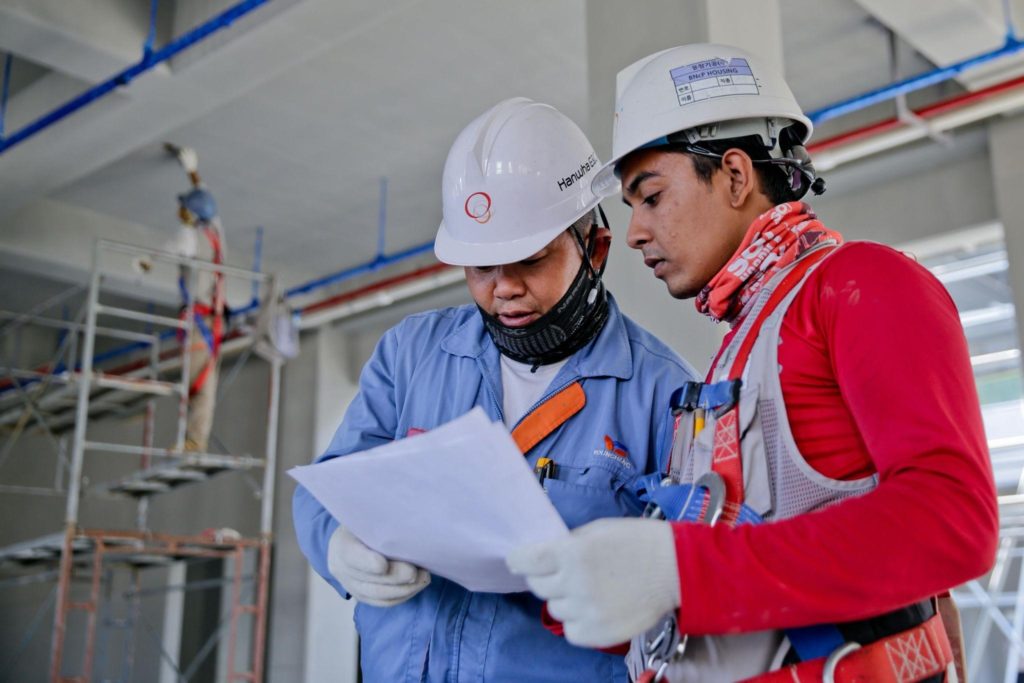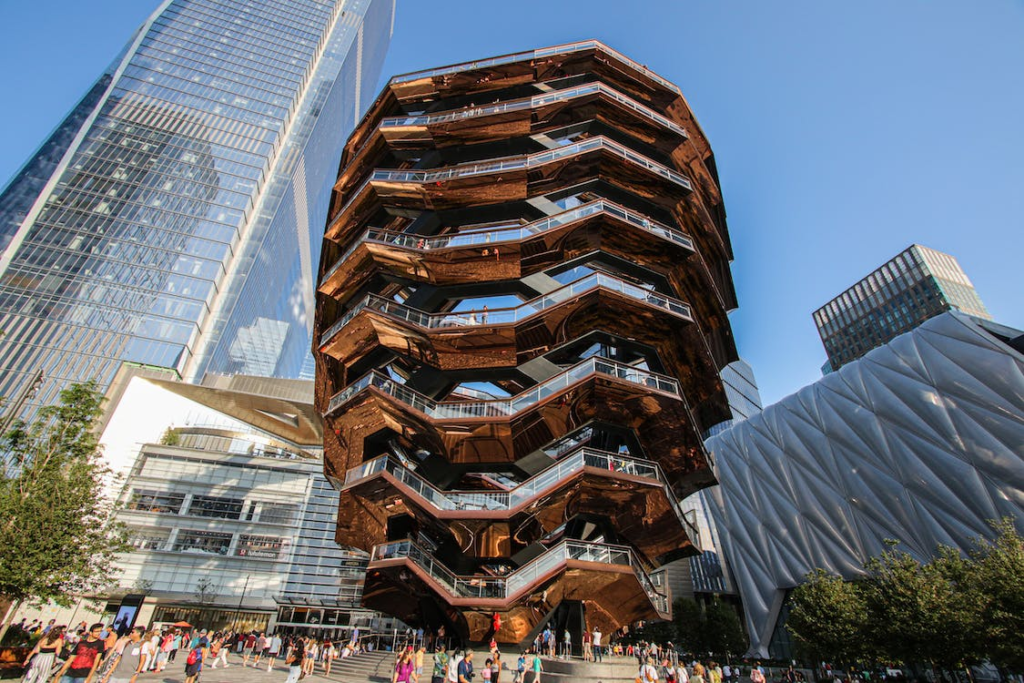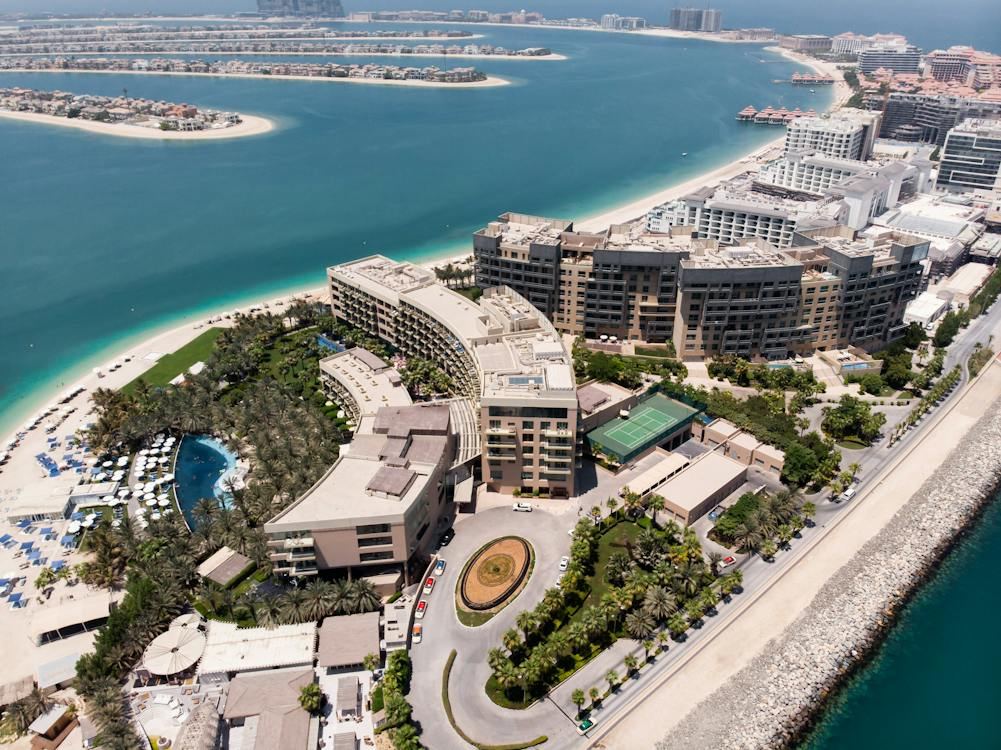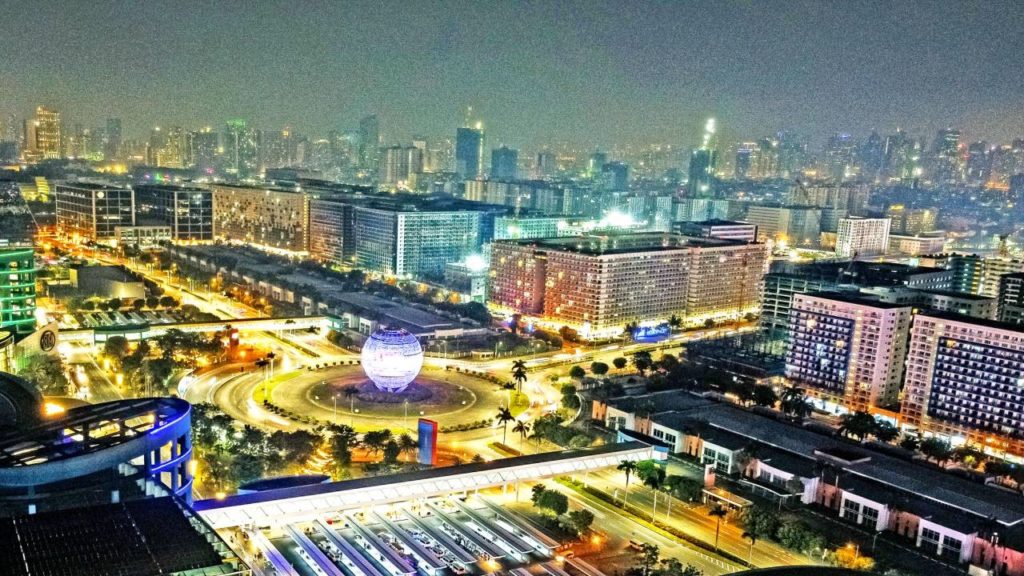
Photo credit to Anamul Rezwan. Construction jobs are generated from new urban developments.
Cities worldwide, while diverse in demographics and culture, share a common pursuit of progress through new urban developments. These projects not only enhance convenience amid urban congestion but also stimulate local economies and communities through various socio-economic activities like job creation.
Whether in the form of public transportation, cutting-edge business districts, or towering residential communities, a single new development requires a whole host of jobs from pre-construction, to construction, and completion. These range from real estate developers and planners to construction workers and suppliers – all requiring extensive collaboration for successful project development.
Hudson Yards: Direct and indirect employment opportunities

Photo credit to Following NYC. Featuring ‘Vessel’, a honeycomb-like structure and visitor attraction in the Hudson Yards Development in Manhattan, New York City.
The cycle of job creation doesn’t stop after completion. A new development also drives indirect employment opportunities generated from industries attracted or related to the development.
Such is the case for Hudson Yards, New York City’s 28-acre mixed-use development and considerably the United States’ biggest megadevelopment in history. It had created thousands of construction jobs that resulted in transforming Manhattan’s iconic skyline and becoming home to diverse shops, offices, cultural institutions, and hotels and residences. Ongoing operations and management of these facilities are expected to contribute to its large-scale economy, such as hosting over 55,752 workers daily and about $19 billion annually to the city’s GDP.
Dubai and Songdo IBD: Creating economic opportunities afresh
Meanwhile, cities like Dubai and Songdo International Business District (IBD) generate jobs by creating economic opportunities from the ground up. They used land reclamation as an urban development strategy to address land scarcity and high population density challenges.

Photo credit to Kadir Avşar. A closer aerial view of the Palm Islands.
Dubai’s ambitious projects, including the Palm Islands, the World Islands, and Burj Al Arab, have turned it into an ultramodern metropolis for commerce and tourism. In 2023, it drew over 30,000 new businesses, driving demand for talent in finance, legal, and digital technology sectors.
The Songdo IBD is an ongoing smart city built on reclaimed land in Incheon, South Korea. It’s designed to be an international business and residential hub with sustainable features. As of 2020, the 1,500-acre development hosts about 30,000 residents, 33,000 jobs, and 70% fewer emissions than any other development.
SM’s Integrated City Developments: Empowering local communities and residents

SM Prime contributed a photo. An aerial view of SM Mall of Asia (MOA) featuring its iconic Globamaze and thriving network of retail, business, residential, and hotel developments.
The SM Group, a leading conglomerate in the Philippines, has an ecosystem of interests spanning retail, banking, property, and mall developments across the country, making it the largest employer with over 140,000 employees.
For every SM mall development by SM Prime Holdings, the integrated property developer of the Group, the local economy is invigorated because of the opportunities created by supporting small and medium enterprises (SMEs) that comprise about 68% of its mall tenants. For instance, SM City Bataan, SM Supermalls’ 83rd mall, employs about 96% of its mall administration staff who are residents called Bataeños, including two in leadership roles. It also proudly showcases local industries by partnering with homegrown businesses like family-owned brands and locally managed franchises.
Job security, stable income, and tax revenues contribute to the local workforce’s quality of life; and SM Prime ensures to manifest these waves of progress in its developments, especially in its future plans for smart cities in the Philippines to be spearheaded by its ongoing 360-hectare development in Pasay City.
New urban developments are catalysts for growth, innovation, and avenues for increased prosperity, shaping local economies through job creation and improved lives. The success of these city centers requires a network of opportunities – from its pre-construction supply chain to empowering businesses for individuals to thrive and contribute to the communities.
No comments:
Post a Comment